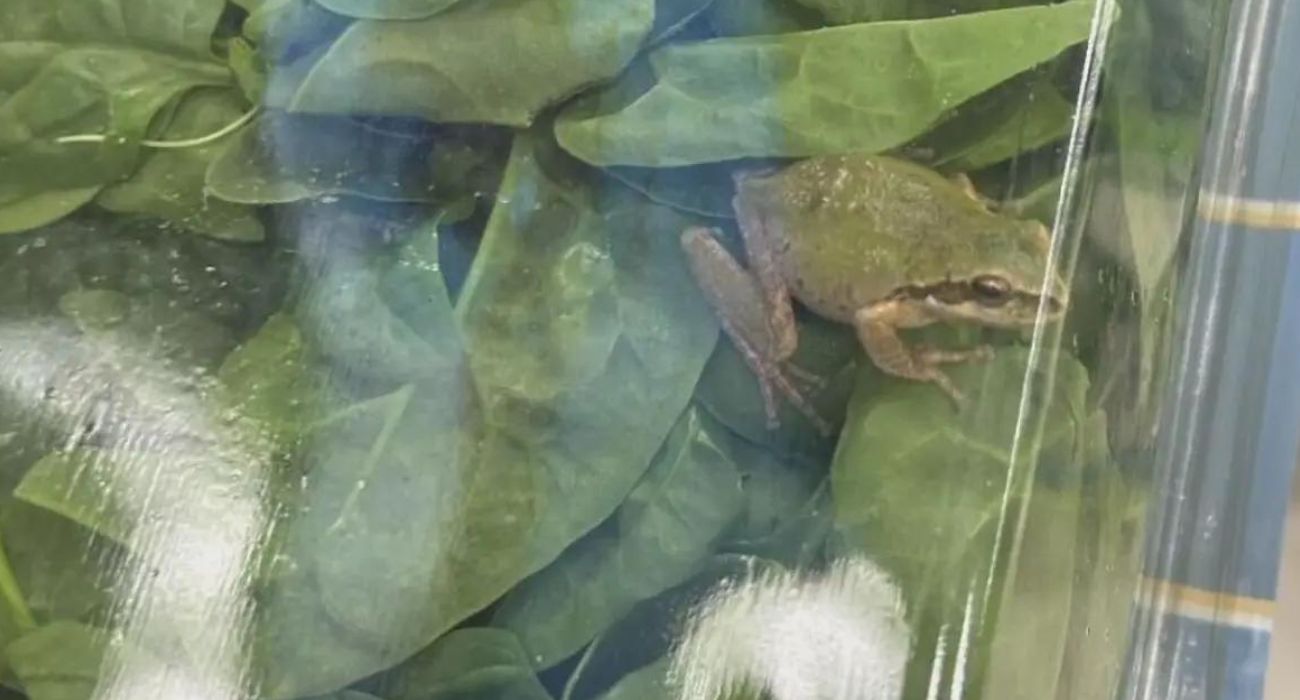A typical day took an unusual twist for a Detroit resident when she found a live frog in her package of spinach.
“It was alive and moving,” Amber Worrick told reporters, according to NBC 5 DFW. “Just thank God I didn’t eat the frog.”
Worrick had purchased the package of Earthbound Farms Organic Spinach from a regional supermarket chain called Meijer. Upon arriving at her suburban home in Southfield, her daughter made the startling discovery.
She returned to the store with the spinach and its unexpected occupant. The store workers released the frog outdoors and promptly refunded Worrick for the purchase.
“I didn’t want him to die, but I didn’t want him in my food,” laughed Worrick in an interview with Fox 2 Detroit.
“On the package, it says three times washed, or something like triple washed,” she added. “I don’t believe that it was washed or else they would have caught a whole live frog.”
California-based Taylor Farms — the parent company of Earthbound Farms — released a statement expressing remorse for the incident and renewing its pledge to provide “the freshest, finest quality veggies for consumers,” according to NBC 5.
As recently reported in The Dallas Express, there has been a surge in food safety recalls this year, with the grocer Trader Joe’s issuing a string of three in just a few weeks.
Yet it was releasing the frog — later discovered to be a Pacific tree frog and thus a non-native species to Michigan — that raised concerns among the authorities in Michigan.
A spokesperson with the Michigan Department of Agricultural and Rural Development named Jennifer Holton explained that the incident had been reported to the U.S. Food and Drug Administration, according to NBC 5. The frog was located and placed in an outdoor structure due to ecological considerations.
Non-native species can significantly damage local ecosystems, as exemplified by the spread of zebra mussels in Texas waterways, as reported last year in The Dallas Express.
These invasive mussels from the Black and Caspian seas put local aquatic life at risk by eating up phytoplankton, thus depriving many species of an essential food source.






